Nigeria has the 5th largest cattle herd in Africa, following Ethiopia, Sudan, Chad & Tanzania. Dairy farming is an important agricultural sector in Nigeria. It is a main source of livelihood for smallholder farmers and contributes significantly to the country’s economy.
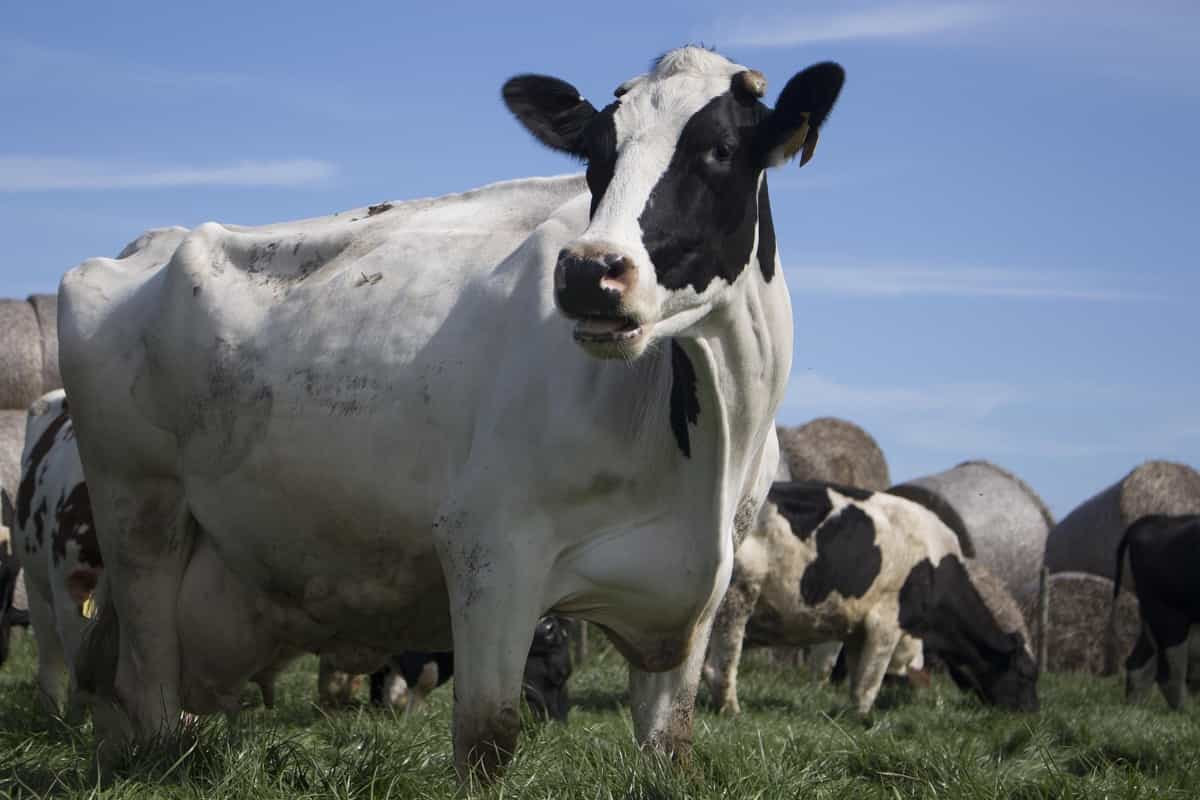
How to start dairy farming in Nigeria
Factors affecting dairy farming in Nigeria
- Many factors affect dairy farming in Nigeria. The main factor is the climate. The hot, humid climate is not conducive to dairy farming. Another important factor is the lack of infrastructure. There are no refrigerated trucks or storage facilities for milk. This means that milk must be consumed immediately after it is produced, limiting the amount produced.
- Nigerian farmers cannot access the same high-quality feed and equipment as farmers in developed countries. This makes it difficult to produce high-quality milk. Finally, the Nigerian government does not provide any subsidies or support for dairy farmers, making it difficult for them to compete with imported milk products.
Dairy farming importance in Nigeria
- Dairy farming is vital in providing milk and other dairy products to the growing population. In addition, dairy farming provides employment opportunities for the rural population.
- Dairy farming is an important source of nutrition for the growing population in Nigeria. Dairy products are rich in proteins, vitamins, and minerals essential for human health.
- In addition to its nutritional value, dairy farming also contributes significantly to the economy of Nigeria. The dairy industry generates income from the sale of milk and other dairy products. It also provides employment opportunities for the rural population. The government earns revenue from taxes levied on the dairy industry.
In case you missed it: How to Start Dairy Farming in Brazil: Business Plan, Breeds, Profits, and Loans
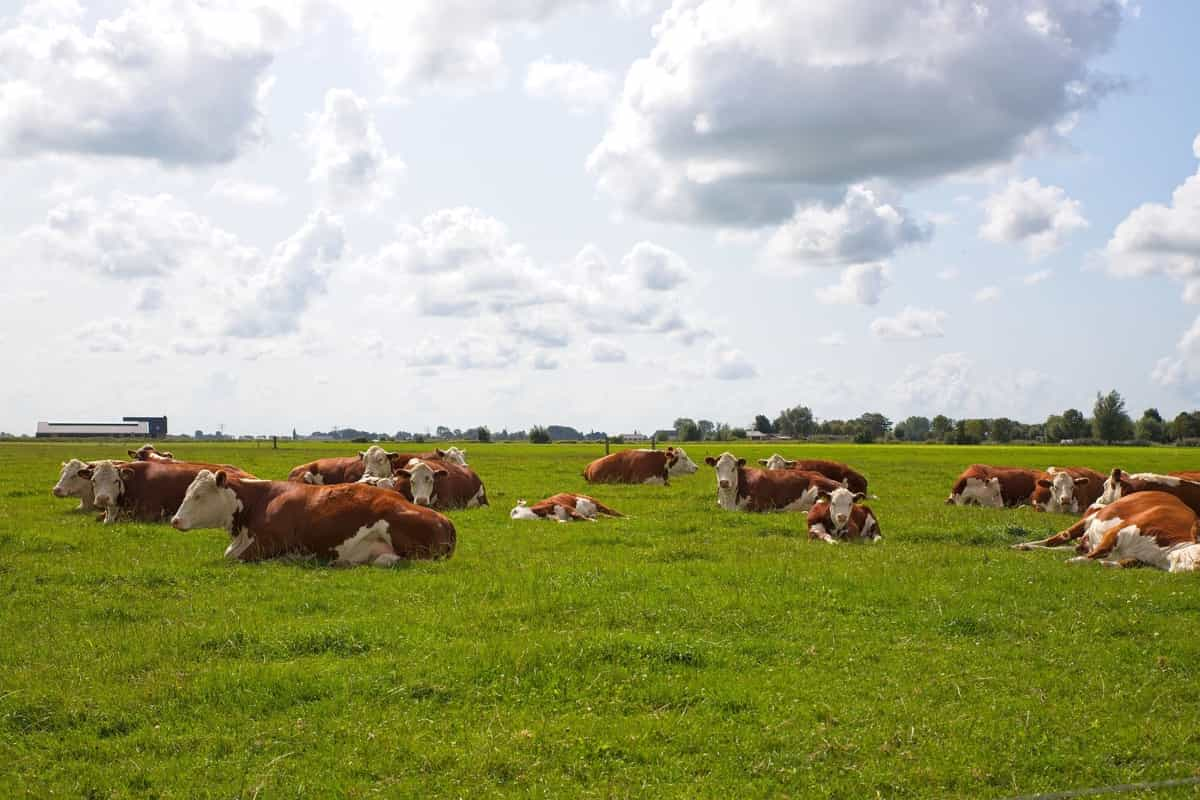
How to start dairy farming in Nigeria?
- Firstly, you’ll need to find a good location for your farm. The climate in Nigeria is tropical, so you’ll need to find a cool spot with plenty of water.
- Next, you’ll need to get some dairy cows. You can buy them from a local farmer or import them from another country. Once you have your cows, you’ll need to build pens and shelters for them. Then, you’ll need to purchase feed and hay for your cows.
- Finally, you’ll need to hire workers to help you with the day-to-day tasks on the farm.
Small-scale dairy farming in Nigeria
- The Nigerian dairy industry is in a period of transition, with small-scale farming operations becoming increasingly commercialized. To meet the growing milk demand and dairy products, small-scale farmers must adopt more efficient production practices.
- One way to improve efficiency is by providing small-scale farmers with quality cattle feed. Good quality cattle feed can help improve milk production and herd health while reducing costs. Small-scale farmers often find it difficult to source quality cattle feed, so assistance from government or development organizations can be helpful.
- Another way to improve efficiency on small-scale dairy farms is through better management practices. This includes keeping accurate records, investing in training for farm workers, and using improved breeding techniques. By adopting these practices, small-scale dairy farmers can improve their productivity and profitability.
- The Nigerian government has been working to support the development of the country’s dairy sector. This includes initiatives like providing extension services to small-scale farmers and establishing a national Milk Quality Control Laboratory. With continued support from the government, small-scale dairy farming in Nigeria has great potential to grow and thrive.
Essential steps to starting a dairy farming business in Nigeria
The Nigerian dairy industry is growing rapidly, with the government investing heavily in the sector recently. However, starting a dairy farm in Nigeria can be daunting, especially for those without experience in the industry.
1. Choose your location carefully: Dairy farming requires a lot of lands, so it’s important to choose a location with ample space for your operation. The climate is also important, as dairy cows need access to pasture and fresh water. The farm should be situated in an area with plenty of grazing land and water resources.
2. Get the right equipment: You’ll need milking machines, refrigeration units, and other specialized equipment for your dairy farm. Make sure to purchase high-quality products that will last.
3. Purchase quality cattle: Once you have found a suitable place, the next step is to purchase some quality cattle. You can buy cows from a local market or import them from another country.
4. Build shelter and fencing: The third step is to build shelter and fencing for your cattle. The shelter will protect them from the sun and rain, while the fencing will keep them safe from predators.
5. Create a feeding plan: Another important step is to create a feeding plan for your cows. They should be given a balanced diet that includes hay, grass, grains, and minerals.
6. Train your staff: Hiring experienced staff is crucial for a successful dairy operation. Make sure to provide training on milking techniques, animal husbandry, and safety procedures.
7. Market the milk: After processing the milk, the final step is to market it to retailers or consumers. This can be done through direct sales or by setting up distribution channels. Nigeria has a growing demand for fresh milk and dairy products. Create a marketing plan to reach potential customers and sell your products at a fair price.
In case you missed it: Dairy Farming Loan in India: Benefits, Banks, Interest Rate, Documents, and NABARD
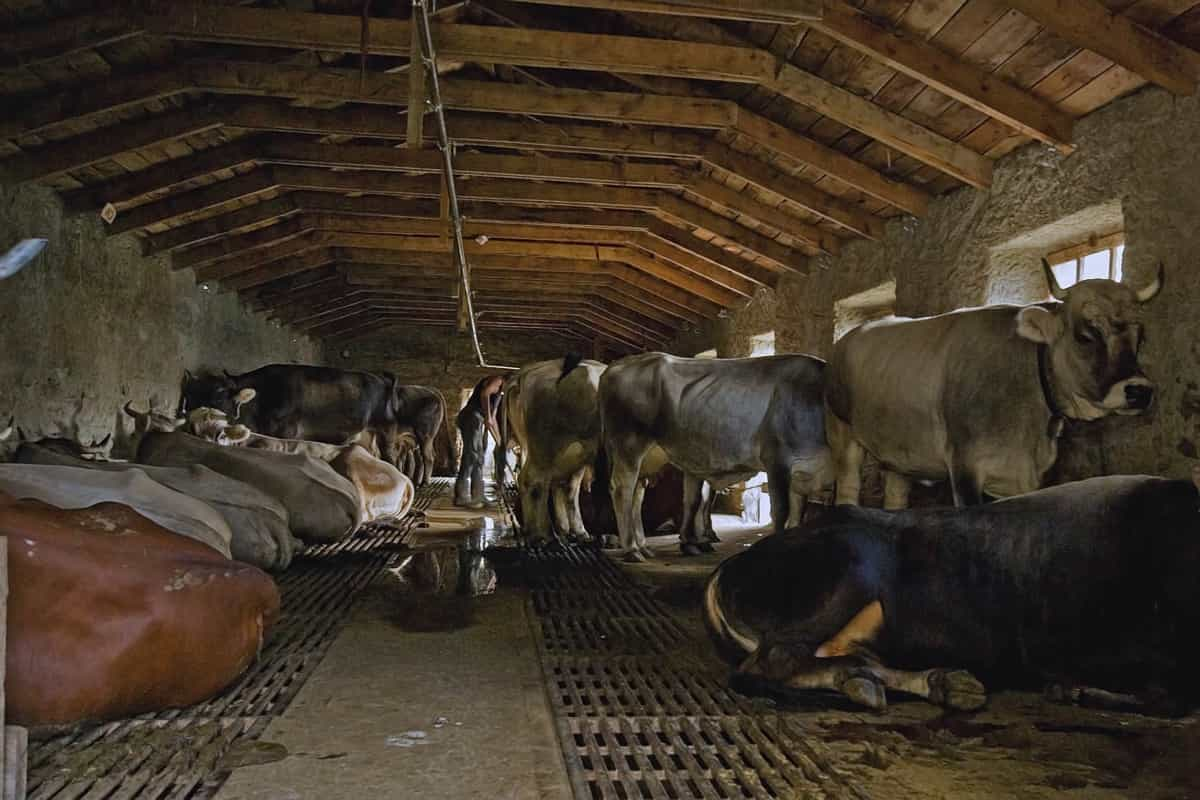
Specialized dairy breeds in Nigeria
There are many dairy breeds available in Nigeria, each with unique benefits. These include Friesian, Brown Swiss, Jersey, Holstein, Ayrshire, and Guernsey (All temperate origin). Friesian, Brown Swiss, and Jersey were imported to Nigeria for crossbreeding with indigenous cattle to raise the level of production.
Dairy cattle production systems in Nigeria
Dairy cattle production in Nigeria is a complex and diverse system shaped by the country’s climate, geography, and cultural traditions. Small-scale farmers make up most of the dairy industry in Nigeria, and a wide range of production systems are used within this sector. The most common system is extensive grazing, where cows can roam freely on pastures, and crop residues are used as supplementary feed.
This system is well-suited to the large tracts of land available in Nigeria, but it can be labor-intensive and result in low milk yields. Other common production systems include zero-grazing (where cows are confined to pens and fed primarily on hay or silage) and mixed farming (where dairy cattle are kept alongside other livestock such as goats or sheep). Each of these systems has its advantages and disadvantages, and the choice of the production system will depend on the specific circumstances of each farm.
With the right management practices, Nigerian dairy farmers can produce high-quality milk that meets the needs of local communities. However, the industry faces many challenges, such as low productivity levels, limited market access, and poor infrastructure. There is a need for more research into productive and sustainable dairy production systems that can be adapted to the unique conditions found in Nigeria.
Types of dairy production systems in Nigeria
- The smallholder system is Nigeria’s most common type of dairy production system. In this system, smallholders own and operate dairy farms with less than 10 cows. The smallholders sell milk to local dairies or middlemen, who then sell the milk to larger dairies or processors.
- The pastoral system is common in northern Nigeria, where Fulani herders graze their cattle on open-range land. The Fulani sell milk to local dairies or middlemen, who then sell the milk to larger dairies or processors.
- The agro-pastoral system is a hybrid of the smallholder and pastoral systems and is common in central Nigeria. In this system, smallholders own and operate dairy farms with less than 10 cows. The smallholders also cultivate crops such as maize, sorghum, and rice. The agro-pastoralists sell milk to local dairies or middlemen, who then sell the milk to larger dairies or processors.
In case you missed it: How to Start Dairy Farming From Scratch: A Complete Guide for Beginners
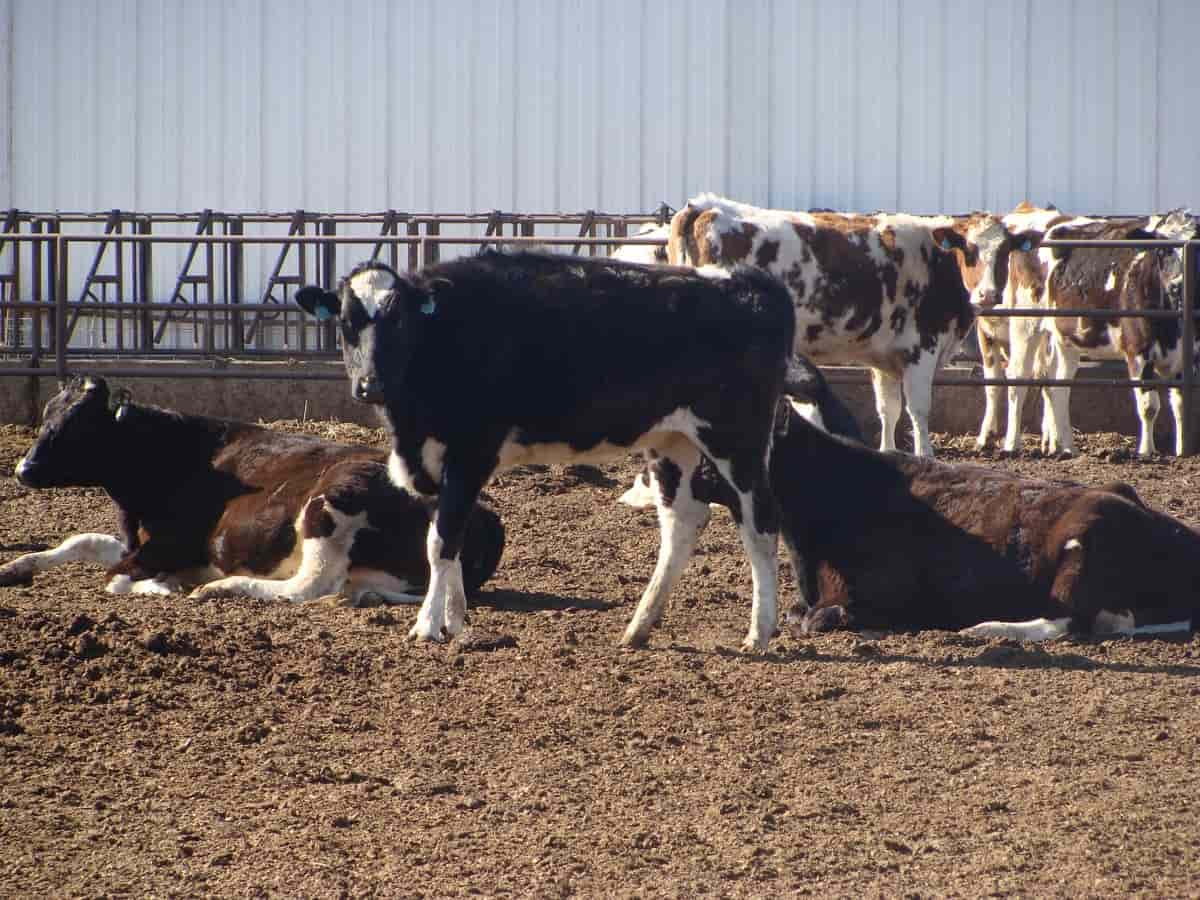
Opportunities for dairy production in Nigeria
- The Nigerian dairy industry presents a unique opportunity for farmers to produce high-quality milk for a growing population. Nigeria has the potential to become a leading producer of dairy products in Africa.
- The Nigerian government is investing in the dairy industry to improve production and infrastructure. The government is working with international organizations to provide technical assistance and training to Nigerian farmers. Several initiatives are underway to support the growth of the dairy sector, including providing subsidies for feed and livestock and constructing processing facilities.
- Due to population growth and urbanization, there is a growing demand for dairy products in Nigeria. The middle class is expanding, and there is an increasing demand for protein-rich foods such as milk and cheese. With proper investment and technical assistance, Nigeria has the potential to become a main player in the global dairy market.
Dairy farming areas in Nigeria
Dairy farming is an important part of the agricultural sector in Nigeria. Dairy farming areas in Nigeria are located in the country’s northern, central and southern parts.
- The northern part of Nigeria has a dry climate and is home to the Fulani people. The Fulani are traditionally nomadic pastoralists whose main income source is from livestock. Dairy farming is an important part of Fulani culture and their diet.
- The central part of Nigeria has a more humid climate and is home to the Hausa people. The Hausa are sedentary farmers whose diet consists mainly of grains and vegetables. Dairy farming is not as common in this region, but some Hausa dairy farmers produce milk for sale in local markets.
- The southern part of Nigeria is home to the Yoruba people and has a tropical climate. The Yoruba are also sedentary farmers but have a more diversified diet that includes crops and livestock. Dairy farming plays a significant role in the Yoruba agricultural economy, and many Yoruba households keep dairy cows for milk production.
Is dairy farming profitable in Nigeria?
Yes, dairy farming can be profitable in Nigeria if done correctly. When starting a dairy farm, there are several factors to consider, like the type of cattle you will raise, the quality of your pasture, and the availability of water and shelter. Dairy farms require a large initial investment but can provide a steady income if appropriately managed.
Rules for starting your dairy farm – design in Nigeria
In Nigeria, dairy farming is an important agricultural sector. To start your dairy farm, there are some key considerations and rules.
- Firstly, it is essential to have a clear business plan. This should include a feasibility study of the local market for dairy products, an evaluation of potential sites for the farm, and a financial analysis.
- Next, you will want to obtain licenses and permits from the Nigerian government. Once these are in place, you can begin to design and build your farm infrastructure.
- Choosing the right breed of the cow for your climate and pasture conditions is important. Holstein Friesian cows are well-suited for dairy production in Nigeria.
- Once your cows are in place, you must implement proper management practices to ensure high milk production. This includes providing your cows with adequate nutrition, housing, and health care.
In case you missed it: Dairy Farming in Germany: Breeds, and How to Start
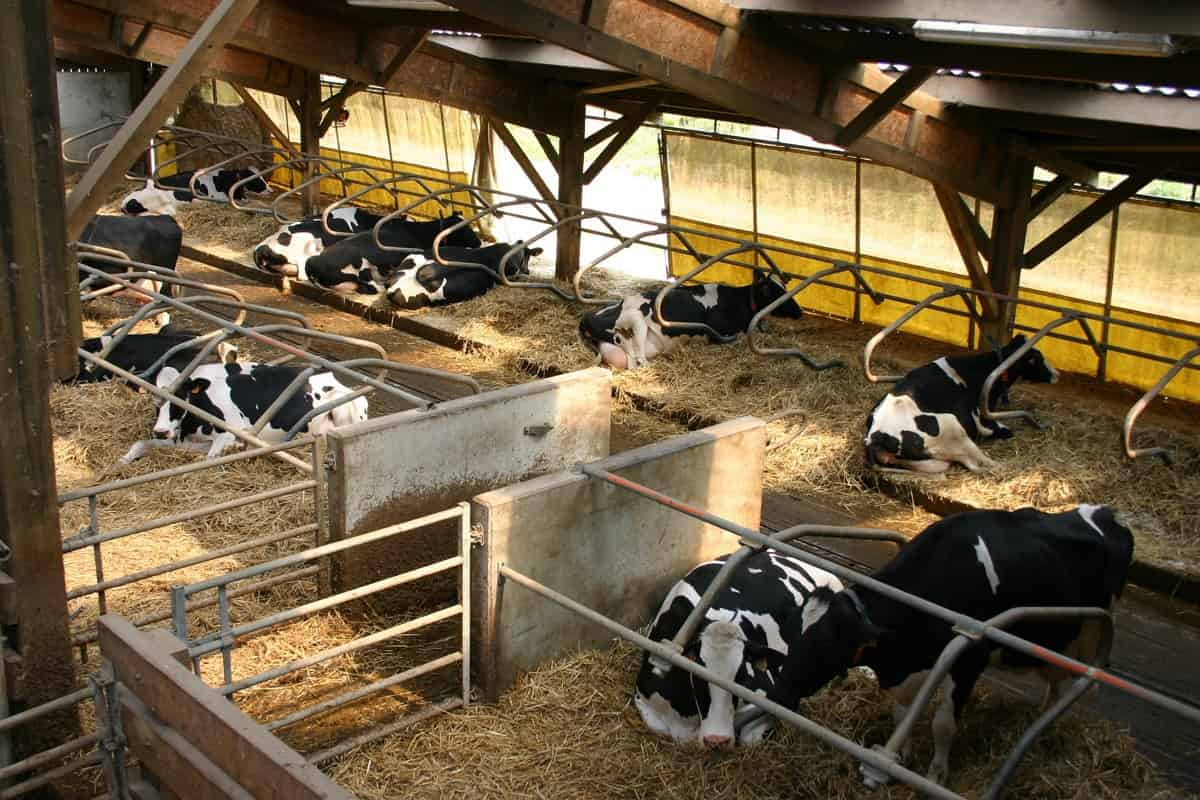
Cost to set up a dairy farm in Nigeria
The cost of starting a dairy farm business in Nigeria is quite high. However, with the right planning and execution, a dairy farm can be a very lucrative business. There are several factors to consider when starting a dairy farm, like the cost of land, buildings, equipment, and animals. The milk and other dairy products market are the most important factors in starting a dairy farm.
Assuming you are referring to a small-scale dairy farm, the setup cost in Nigeria would be relatively low. For example, you would need to purchase a few cows, some fencing, and some basic equipment. The total cost would be around 300,000 Naira.
Impact of dairy farm business on the Nigeria Economy
The dairy farm business has had a positive impact on the Nigerian economy. The sector has created jobs and provided income for many Nigerians. It has also helped to improve the country’s balance of payments. The dairy farm business has contributed to the growth of the Nigerian economy.
Dairy farming loans and subsidies in Nigeria
- The Nigerian government offers several loans and subsidies to encourage dairy farming in the country. The interest rate on these loans is subsidized, making them more affordable for farmers. In addition, the government also provides subsidies for the purchase of dairy cattle and other necessary equipment. These programs have helped to increase the number of dairy farms in Nigeria and have contributed to the growth of the dairy industry in the country.
- One of the main problems faced by dairy farmers in Nigeria is a lack of access to quality milk products. This is because most of the country’s milk production occurs in small-scale operations, which often lack the resources and infrastructure needed to produce high-quality milk products.
- Another problem faced by dairy farmers in Nigeria is a lack of access to markets. This is because the country’s dairy industry is still relatively undeveloped, and few large-scale processors or distributors can purchase milk from small-scale producers. As a result, many farmers are forced to sell their milk at low prices to local traders, who then resell it at higher prices to consumers.
- Finally, another major problem faced by dairy farmers in Nigeria is insecurity. Due to the country’s political instability, many farmers are hesitant to invest in their operations, fearing that their investments may be lost if violence breaks out. This has led to a decline in investment in the Nigerian dairy industry, further hindering its development.
Dairy farming challenges in Nigeria
Dairy farming in Nigeria is a challenging endeavor due to several factors. The main challenge is the lack of access to quality dairy cows. In Nigeria, only a handful of dairy farmers often cannot afford to purchase high-quality cows from outside the country. As a result, the local dairy cows are often of poor quality and produce low yields. Nigeria’s hot and humid climate can be tough on livestock. The country also has a limited amount of arable land, so finding enough pasture for cows can be difficult.
Water resources are another challenge; many parts of Nigeria lack reliable access to clean water, which is essential for dairy farming. Finally, the country’s infrastructure is not well developed, making it hard to transport milk to markets. Another challenge facing dairy farmers in Nigeria is the lack of access to affordable feed. Good quality feed is essential for dairy cows to produce high yields, but it is often very expensive in Nigeria. This makes it difficult for small-scale farmers to break even and profit.
In case you missed it: 19 Key Rules for Effective Dairy Farm Management: From Planning to Reduce Production Cost
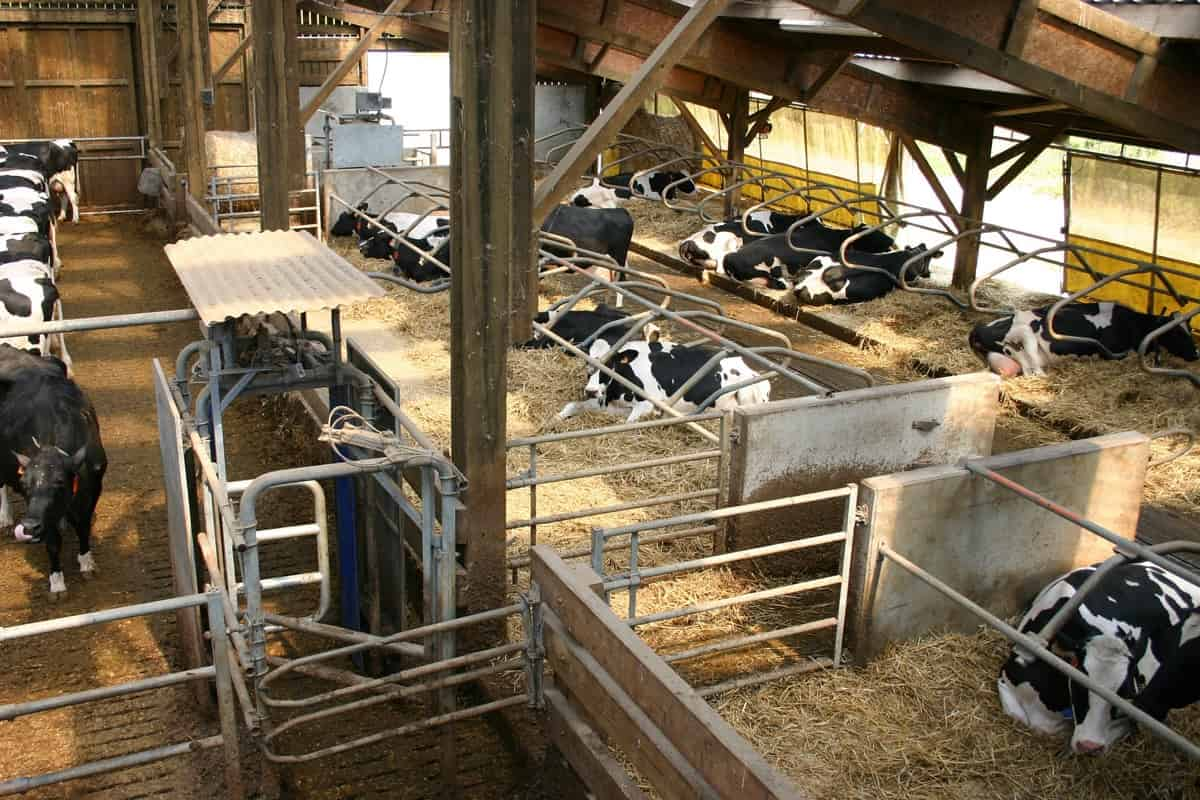
Finally, another big challenge for dairy farmers in Nigeria is the limited availability of veterinary services. Finding a qualified veterinarian to provide treatment can be difficult when cows get sick. This can lead to health problems for dairy animals and lower yields. Despite these challenges, dairy farming in Nigeria can be successful. With careful planning and a commitment to quality, farmers can overcome the difficulties and produce milk that Nigerian consumers.
Conclusion
Dairy farming in Nigeria is the process of raising cows for milk production. The climate and terrain of Nigeria are well-suited for dairy farming, and the country has a long tradition of cattle husbandry. Dairy farming is an essential source of income for many small-scale farmers in Nigeria and plays a vital role in the country’s economy.
- Types of Pesticides Used in Agriculture: A Beginner’s Guide
- Economical Aquaculture: A Guide to Low-Budget Fish Farming
- 15 Common Planting Errors That Can Doom Your Fruit Trees
- How to Make Houseplants Bushy: Effective Tips and Ideas
- Innovative Strategies for Boosting Coconut Pollination and Yield
- Pollination Strategies for Maximum Pumpkin Yield
- The Complete Guide to Chicken Fattening: Strategies for Maximum Growth
- Natural Solutions for Tulip Problems: 100% Effective Remedies for Leaf and Bulb-Related Issues
- Revolutionizing Citrus Preservation: Towards a Healthier, Greener Future
- Natural Solutions for Peony Leaf and Flower Problems: 100% Effective Remedies
- Maximizing Profits with Avocado Contract Farming in India: A Comprehensive Guide
- Natural Solutions for Hydrangea Problems: 100% Effective Remedies for Leaf and Flowers
- The Ultimate Guide to Choosing the Perfect Foliage Friend: Bringing Life Indoors
- From Sunlight to Sustainability: 15 Ways to Use Solar Technology in Agriculture
- The Ultimate Guide to Dong Tao Chicken: Exploring from History to Raising
- The Eco-Friendly Makeover: How to Convert Your Unused Swimming Pool into a Fish Pond
- Mastering the Art of Delaware Chicken Farming: Essentials for Healthy Backyard Flocks
- 20 Best Homemade Fertilizers for Money Plant: DIY Recipes and Application Methods
- How to Craft a Comprehensive Free-Range Chicken Farming Business Plan
- Brighten Your Flock: Raising Easter Egger Chickens for Beauty and Bounty
- How to Optimize Your Poultry Egg Farm Business Plan with These Strategies
- Subsidy for Spirulina Cultivation: How Indian Government Schemes Encouraging Spirulina Farmers
- Ultimate Guide to Raising Dominique Chickens: Breeding, Feeding, Egg-Production, and Care
- Mastering the Art of Raising Jersey Giant Chickens: Care, Feeding, and More
- Ultimate Guide to Raising Legbar Chickens: Breeding, Farming Practices, Diet, Egg-Production
- How to Raise Welsummer Chickens: A Comprehensive Guide for Beginners
- How to Protect Indoor Plants in Winter: A Comprehensive Guide
- Ultimate Guide to Grow Bag Gardening: Tips, Tricks, and Planting Ideas for Urban Gardeners
- Guide to Lotus Cultivation: How to Propagate, Plant, Grow, Care, Cost, and Profit
- Agriculture Drone Subsidy Scheme: Government Kisan Subsidy, License, and How to Apply Online
- Ultimate Guide to Raising Araucana Chickens: Breed Profile, Farming Economics, Diet, and Care
- Bringing Hydroponics to Classroom: Importance, Benefits of Learning for School Students
- Ultimate Guide to Raising Polish Chickens: Breed Profile, Farming Economics, Diet, and Care
- Ultimate Guide to Raising Australorp Chickens: Profile, Farming Economics, Egg Production, Diet, and Care
- Silkie Chicken Farming: Raising Practices, Varieties, Egg Production, Diet, and Care
- Sussex Chicken Farming: Raising Practices, Varieties, Egg Production, Diet and Care
Hello!
Do you know of farms that sell calves of imported dairy cows or the ones that have been breed with local varieties and about how much they can go for?